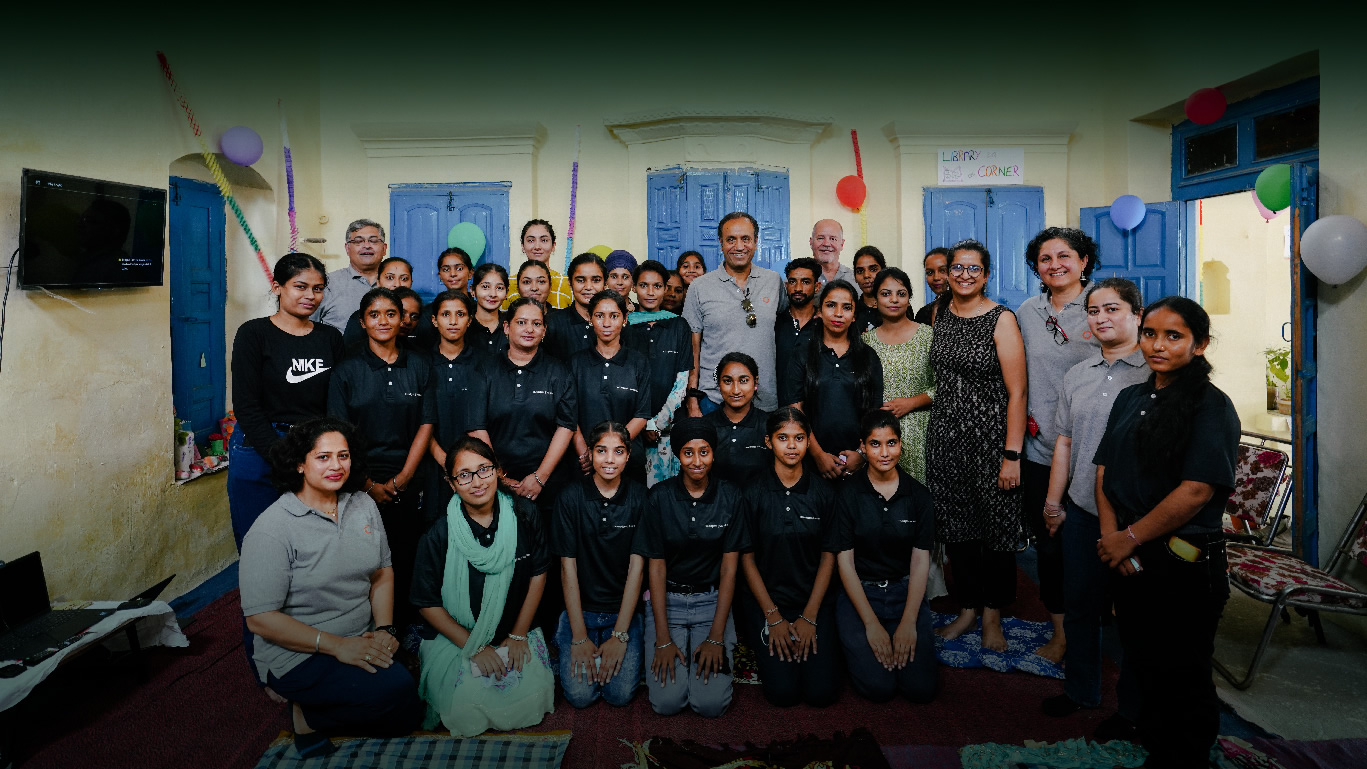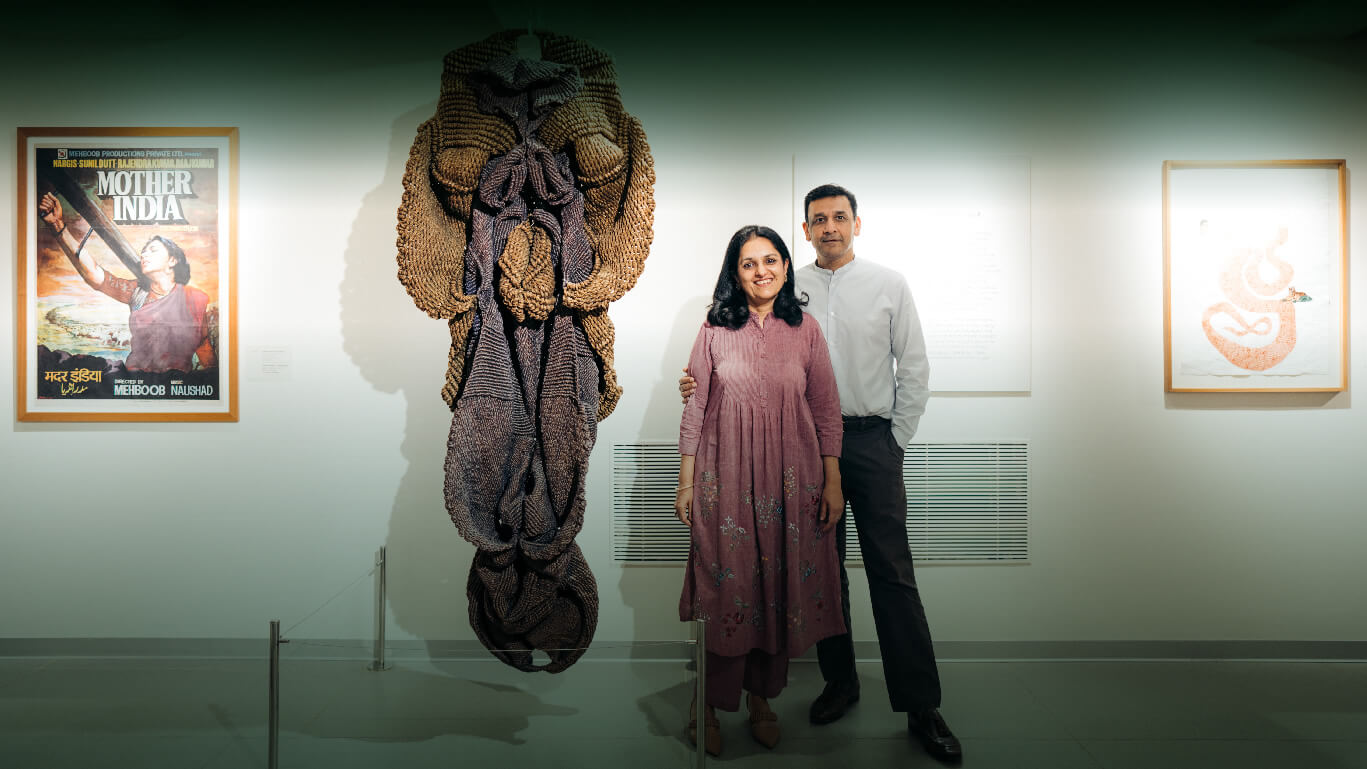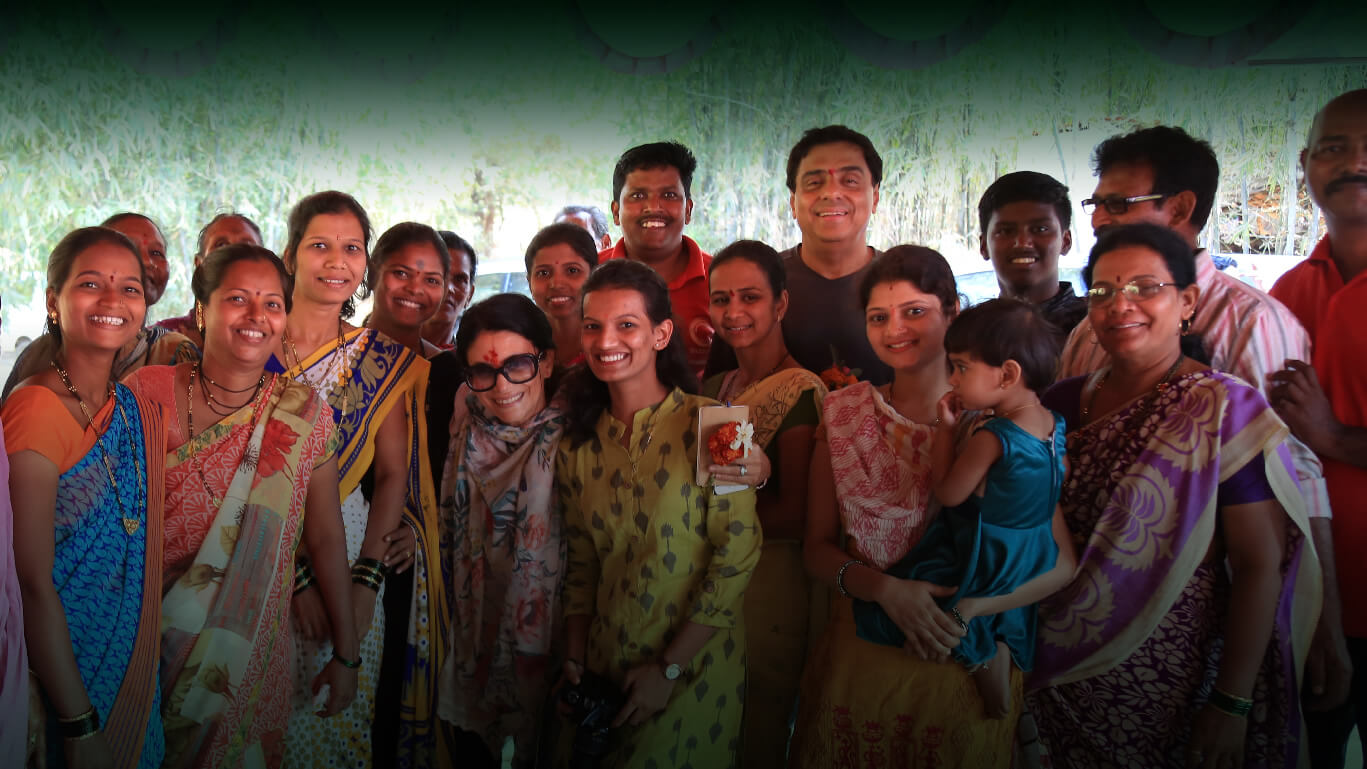Championing the Voice of Nature: A Landscape Approach to Climate Action
A few years ago, Leena Dandekar found herself aboard a train heading to a village far from the urban landscape of Mumbai, the city she called home. Filled with trepidation yet driven by a desire to learn, she was eager to witness the programs of a nonprofit partner organization firsthand. "I was very anxious, I had never been on a train before," recalled Leena with a chuckle. "But I wanted to learn, so I persevered."
After stepping down from her family business and seeking purpose beyond her personal needs, she initially explored volunteering opportunities with nonprofit organizations. However, she quickly realized that she was not a right fit. She emphasized, “Coming from a family business background, not only did I think at scale, but I also had knowledge across different business verticals – and while I had a lot to give, I realized that volunteering might not be the most effective way to channel my intent."
This experience marked the inception of Leena's philanthropic journey, laying the groundwork for what would later evolve into the Raintree Foundation. Embracing the unknown as both a philanthropist and the organization's founder, Leena fearlessly embarked on her path of affecting change. However, her time spent volunteering with nonprofits in Mumbai was not in vain, as it brought about a crucial realization. Leena observed that urban migration was intricately tied to the well-being and livelihoods of people in rural areas, deeply dependent on the lands they inhabit. Recognizing the significance of this connection, Leena's journey in the social impact space began to take shape.
Coinciding with this realization, the Dandekar family experienced a liquidity event, offering Leena an opportunity to delve deeper into her philanthropic endeavors. Newfound resources and a purpose-driven mindset led Leena to embrace what she calls ‘evidence-based philanthropy’.
Building on the insights gained from her time spent with nonprofits, Leena honed her philanthropic vision. She decided to structure her giving portfolio around climate change and sustainability, thus laying the cornerstone for the Raintree Foundation in 2018. Today, Raintree is dedicated to engaging communities in climate change mitigation, conservation, and building sustainable livelihoods.
Starting at the Slopes of the Western Ghats, and Learning Every Step of the Way
Leena's determination sparked the 'Building Climate Resilience for Living Landscapes' pilot, which embeds a ‘landscape approach’ that recognizes the intersectionality and interconnectedness of various actors in a landscape and uses data to inform the problem statements and solutions. Rooted in the principles of 'Circularity' and 'Civic Custodianship', the pilot was launched in the Western Ghats at Velhe — an area housing over 245 million people and rich biodiversity. The Ghats faced alarming threats, losing 35% of forest cover in 90 years to human activities like road development and mining. Neglected in the Northeastern side, Velhe's villages relied on the seasonal river ecosystem, becoming Raintree's focal point. The pilot program adopts a systems thinking approach, with community development, environment, disability, and mental health as its core focus areas. Each area comprises interconnected initiatives, with the community at its focal point and linkages cutting across them.
Drawing from her business background, Leena realized that building a sustainable model required patience, learning, and the right resources. Her expertise allowed her to approach this challenge with confidence and humility, recognizing that starting from scratch meant embracing a learning mindset. “Coming from the background that I did, I knew I could bring the right resources to this work, and I had soaked up a lot of knowledge that I could apply here,” she said.
Recognizing the significance of data and evidence in their thinking and approach, Raintree embarked on a journey to deepen their learning. They meticulously collected all available data on the area's natural systems, aiming to be the voice of nature. Guided by a team of experts in groundwater, agriculture, gender, climate, biodiversity, and conservation, Raintree's approach is holistic and data-driven, with interventions spanning five thematic areas: Watershed Ecology, Biodiversity Conservation, Clean Energy, Sustainable Livelihoods, and Building Resilience. They've meticulously mapped water bodies, groundwater systems, and biodiversity using an intersectional and integrated approach, paving the way for a comprehensive understanding of the ecosystem.
In watershed ecology, they restore rivers, percolation tanks, and pools, while providing access to clean water through filtration units and farm ponds. Addressing biodiversity conservation, Raintree raises awareness and implements a conservation action plan involving biodiversity mapping. Clean energy initiatives feature biodigesters for cooking needs and solar-powered water filtration units. Promoting sustainable livelihoods, Raintree focuses on regenerative agriculture and enhanced farming practices. For building resilience, they conduct mental health, gender and social inclusion workshops, empower local institutions such as women self-help groups, and ensure food security with backyard kitchen gardening initiatives.
The pilot project reinforced Raintree's climate-centric approach while valuing community stakeholders. Leena affirmed the symbiotic relationship, stating, "One cannot be addressed without acknowledging the significance of the other." Embracing local communities' custodianship of natural resources became integral to Raintree's endeavors, harmonizing human prosperity with climate change mitigation.

A farm pond being constructed to combat water scarcity in surrounding agricultural areas in Velhe, Maharashtra

How Raintree Foundation is creating resilient and thriving ecosystems using a 'landscape' approach
Recognizing that One Size Does Not Fit All, and Focusing on What Works
In the Western Ghats, Raintree Foundation encountered the dual challenge of scarcity of natural aquifers and the necessity to foster behavior change among local farmers. “We had to educate the communities about the geographical differences; some farmers believed borewells anywhere would yield water, but we had to show them that Velhe's land was different—it wouldn't yield water no matter how deep we dug,” underscored Leena.
Fortunately, the Western Ghats provided an abundant natural resource – rainfall. Raintree harnessed this by constructing ponds in farmlands to collect rainwater, ensuring sustainable rainfed irrigation and creating additional livelihood sources through fish farming and horticulture. “Some of these ponds are still filled with water, a year later,” added Leena.
But working with communities comes with unique challenges. “The primary challenge is behavior change,” Leena highlighted. To foster openness to these changes, Raintree needed to demonstrate the effectiveness of their initiatives. At the outset of Raintree's farm pond project, only 17 farmers opted in. However, Leena remains optimistic, and said, "This year, I'm hoping that more farmers opt in, and it only keeps increasing."
To address these challenges effectively, Raintree embraced a mindful approach, developing programs that acknowledged the unique realities of the communities they served. Thus far, Raintree has impacted 4,131 people across 654 households.

The Raintree Foundation Office in Velhe
Leena's Call to Action: Philanthropy Beyond Self
Drawing from her business background, Leena understands the value of embracing mistakes during the early stages and incorporating those lessons into future endeavors. "We used to make all our mistakes during the trial period in the chemical business," she shared. Leena maintains that constantly improving one's programs is imperative in philanthropy and highlights the sector's openness to sharing learning and knowledge, providing opportunities to grow not only from one's own mistakes but also those made by others. She emphasized that failure is the key to constant improvement, stating, "if one doesn't constantly improve, they will sink."Embracing the long-term nature of climate action efforts, Leena values patience and collaboration. “If we want our work to last, we have to be patient,” she emphasized, while highlighting that any cause which requires monumental effort and scale, will need concentrated and intentional efforts from diverse funders. Leena envisions a future where nature and humanity coexist harmoniously, driving sustainable progress. Through Raintree Foundation, she seeks to catalyze impactful solutions, leaving a legacy of a greener planet and empowered generations.
She further emphasizes the essence of true philanthropy – looking beyond oneself. She implores other funders to step out of their individual realities and confront climate change head-on. "How many of us step outside our cities to see what lies beyond our comfort zones?" she challenged. For Leena, personal gratification takes a backseat to securing a sustainable future for the next generation. She stressed, “Leaving a profound legacy for our children and grandchildren necessitates taking active, significant measures in climate response – a reassessment of our lifestyles, consumption, and philanthropic endeavors.”
She asserted, “Climate change spares no one”, urging us all to embrace our responsibility with utmost urgency.
Inspired thinking presented by

YOU MAY ALSO LIKE

















